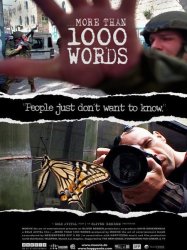Mulheres Africanas – A Rede Invisível is a brésilien film of genre Documentary
Mulheres Africanas – A Rede Invisível (2013)

If you like this film, let us know!
- Infos
- Casting
- Technical infos
- Photos
- Videos
- Film quotes
- Characters
- Music
- Awards
OriginBresil
Genres Documentary
Mulheres Africanas – A Rede Invisível is a 2012 Brazilian documentary film written and directed by Carlos Nascimbeni.
The documentary presents an overview of the achievements and struggles of women in Africa in the last century. The film includes testimony from five women who tell their life stories: Graça Machel, human rights activist and wife of Nelson Mandela; Mama Sara Masari, businesswoman, Leymah Gbowee, winner of the Nobel Peace Prize; Luisa Diogo, former Prime Minister of Mozambique and Nadine Gordiner, winner of the Nobel Prize in Literature.
Comments
Leave comment :
Suggestions of similar film to Mulheres Africanas – A Rede Invisível
There are 8971 with the same cinematographic genres, 10637 films with the same themes (including 118 films with the same 4 themes than Mulheres Africanas – A Rede Invisível), to have finally 70 suggestions of similar films.If you liked Mulheres Africanas – A Rede Invisível, you will probably like those similar films :

Death in Gaza (2004)
, 1h20Directed by James Miller
Genres Documentary
Themes Films set in Africa, Films about religion, Documentary films about law, Documentary films about war, Documentary films about historical events, Documentaire sur une personnalité, Documentary films about politics, Documentary films about religion, Political films, Films about Jews and Judaism
Actors James Miller, Saira Shah
Rating79%






My Neighbor, My Killer (2009)
, 1h20Directed by Anne Aghion
Origin France
Genres Documentary
Themes Films set in Africa, Films about racism, Documentary films about racism, Documentary films about law, Documentary films about war, Documentary films about historical events, Documentaire sur une personnalité, Documentary films about politics, Political films
Rating75%






Israel vs Israel (2010)
, 58minutesGenres Documentary
Themes Films set in Africa, Films about religion, Documentary films about law, Documentary films about war, Documentary films about historical events, Documentaire sur une personnalité, Documentary films about politics, Documentary films about religion, Political films, Films about Jews and Judaism
Rating72%






...More Than 1000 Words (2006)
, 1h18Origin Israel
Genres Documentary
Themes Films set in Africa, Films about religion, Documentary films about the visual arts, Documentary films about law, Documentary films about war, Documentary films about historical events, Documentaire sur une personnalité, Documentary films about politics, Documentary films about religion, Political films, Films about Jews and Judaism
Actors Galit Gutmann
Rating74%






Crayons and Paper (2009)
, 30minutesOrigin USA
Genres Documentary
Themes Films set in Africa, Films about children, Seafaring films, Transport films, Documentary films about law, Documentary films about war, Documentary films about historical events, Documentaire sur une personnalité, Documentary films about politics, Political films
 , 1h34
, 1h34Origin USA
Genres Documentary
Themes Films set in Africa, Films about racism, Documentary films about racism, Documentary films about law, Documentary films about war, Documentary films about historical events, Documentaire sur une personnalité, Documentary films about politics, Political films
Actors Helen Mirren
Rating75%






Four Women of Egypt (1997)
Directed by Tahani Rached
Origin Canada
Genres Documentary
Themes Films set in Africa, Documentaire sur une personnalité, Documentary films about politics, Political films
Rating72%





The film opens with four middle aged women walking on a bridge at the barrages south of Cairo, Egypt. The four women speak throughout the film about Egypt, its politics, culture, and Islam, the most popular religion in the country. They connect the politics and ideologies of past and present with their own experience. The four women are friends and were born under the colonial occupation of Egypt. They share their memories that span five decades throughout the film. The four women were political prisoners under the regime of Anwar Sadat.

The Making of a Martyr (2006)
Origin Canada
Genres Documentary
Themes Films set in Africa, Films about religion, Films about terrorism, Documentary films about law, Documentary films about war, Documentary films about historical events, Documentaire sur une personnalité, Documentary films about politics, Documentary films about religion, Documentary films about terrorism, Political films, Films about Jews and Judaism, Films about Islam
Rating69%






Mugabe and the White African (2009)
, 1h30Origin United-kingdom
Genres Documentary
Themes Films set in Africa, Environmental films, Films about racism, Documentary films about business, Documentary films about racism, Documentary films about law, Documentary films about environmental issues, Documentaire sur une personnalité, Documentary films about politics, Political films
Rating76%





En 2008, Mike Campbell – l’un des derniers fermiers blancs au Zimbabwe face au violent programme de réforme agraire – prend le risque sans précédent d’attaquer le Président Robert Mugabe devant le tribunal du SADC (Communauté de Développement Sud-Africain) afin de défendre ses droits. Son exploitation agricole emploie plus de 500 travailleurs et abrite également leurs familles. Mike Campbell accuse Mugabe et son gouvernement de discrimination raciale et de violation des Droits de l’Homme. Embarqués dans un procès hors du commun, Mike et sa famille vont devoir faire face à la violence et à la cruauté du régime du dictateur. Ce documentaire retrace leur combat.

Voices of Sarafina! (1988)
, 1h25Directed by Nigel Noble
Origin USA
Genres Documentary
Themes Films set in Africa, Films about racism, Documentary films about racism, Documentary films about law, Documentaire sur une personnalité, Documentary films about politics, Political films
Actors Leleti Khumalo
Rating65%





 Connection
Connection